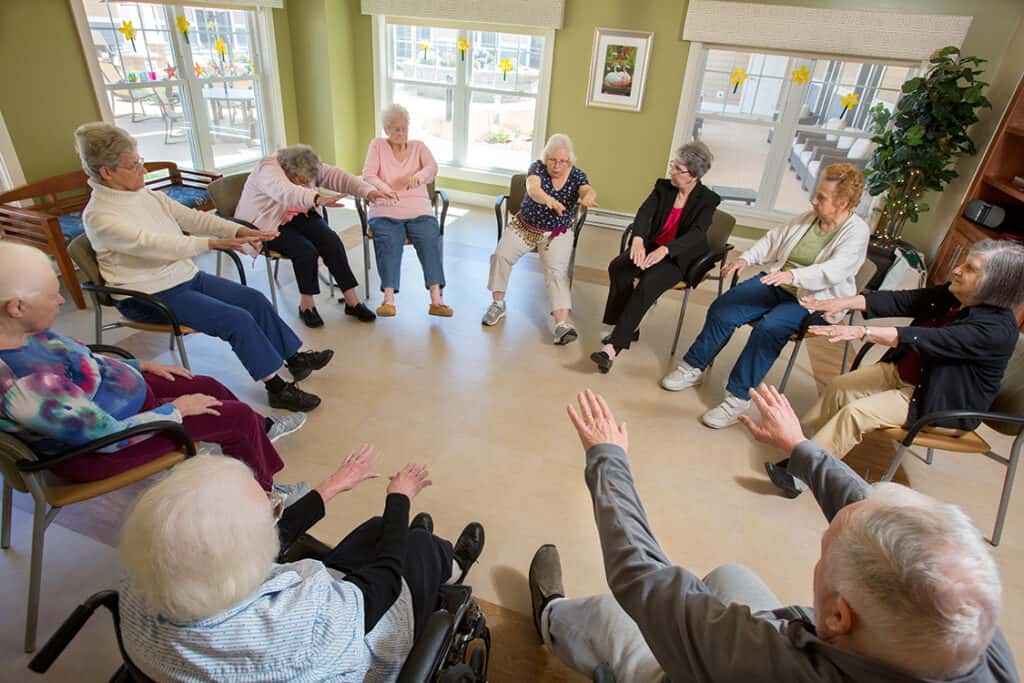Find trained Memory Care caregivers providing personalized senior care.
Find trained Memory Care caregivers providing personalized senior care.
Blog Article
Exactly How Aided Living Facilities Enhance High Quality of Life for Those With Mental deterioration
Assisted living centers play an essential role in improving the high quality of life for individuals with mental deterioration by carrying out customized care methods that accommodate their distinctive demands. These environments incorporate organized activities with psychological support, fostering a feeling of neighborhood while ensuring safety and independence. The assimilation of engaging programs and family members involvement even more improves the residents' experience. The complexities of mental deterioration care proceed to evolve, triggering a better examination of just how these centers adjust and innovate to satisfy the challenges encountered by citizens and their households. What implications does this have for future treatment models?
Personalized Care Program
(Dementia Care Charlotte)Oftentimes, people with dementia require tailored support that resolves their unique demands and choices. Customized care plans are important in assisted living setups, as they make sure that each resident receives suitable attention and solutions. These plans are created collaboratively, involving health care experts, caretakers, and household participants to develop a detailed summary of the individual's clinical background, cognitive capacities, and individual rate of interests.
A well-structured customized treatment strategy typically consists of particular objectives connected to health and wellness monitoring, daily activities, and social involvement. It represents the person's cognitive decline while promoting independence and self-respect. Regular assessments and updates to the care strategy are vital, as they enable modifications based upon the local's progressing problem and preferences.
Trick components of these plans often involve medicine management, behavioral support approaches, and dietary standards customized to the individual's demands (Assisted Living). By focusing on individualized care, assisted living centers can foster a supportive environment that improves the top quality of life for people with mental deterioration, ultimately adding to their total wellness and joy. This customized technique appreciates the originality of each homeowner, ensuring they get the thoughtful care they call for

Engaging Tasks and Programs
Engaging citizens in purposeful activities and programs is essential for enhancing the lifestyle for individuals with mental deterioration. These activities not just offer pleasure yet also stimulate cognitive feature and promote social communication, which can minimize sensations of seclusion frequently experienced by residents.

Additionally, customized programs are crucial in making sure that each homeowner's special preferences and capabilities are acknowledged. This customized strategy urges engagement, enhances self-esteem, and offers a feeling of achievement.
In addition, routine assessments of homeowners' rate of interests can help team customize and adjust activities to better suit progressing needs. By prioritizing interesting activities and programs, assisted living centers can significantly improve the general experience and psychological wellness of individuals dealing with mental deterioration.
Safe and Supportive Environment
Developing a safe and supportive atmosphere is important for individuals with dementia, as it directly affects their well-being and high quality of look at this site life. Aided living facilities are made with details attributes that advertise safety and security while fostering a complacency and comfort. These atmospheres prioritize availability, with layouts that minimize complication and encourage freedom, permitting citizens to navigate their environments a lot more quickly.
Safety and security measures, such as protected entries and leaves, avoid wandering and unauthorized access, which are important factors to consider for individuals with mental deterioration (Assisted Living). Team participants are trained to recognize the distinct requirements of homeowners, supplying tailored assistance and supervision to ensure their security. Furthermore, the consolidation of soothing shades and familiar things can help reduce anxiety and disorientation, producing an extra comforting environment.
Along with physical safety and security, emotional support is critical. Facilities typically use staff who are not just knowledgeable in caregiving however also learnt compassion and interaction, cultivating trust fund and rapport with homeowners. This holistic technique adds to a nurturing setting where individuals feel valued and comprehended, inevitably improving their total lifestyle.
Social Interaction and Community
An encouraging environment not only prioritizes safety and security however additionally cultivates chances for social interaction and neighborhood involvement, which are vital for individuals with dementia. In assisted living centers, structured tasks and communal spaces motivate citizens to connect with one an additional, lowering sensations of isolation frequently experienced by those with cognitive problems.
Social communication plays a considerable duty in enhancing psychological health and cognitive feature (Memory Care). Involving with peers in group tasks such as video games, arts and crafts, or workout not only promotes cognitive abilities yet additionally nurtures a sense of belonging. Facilities typically organize events that advertise socialization, enabling citizens to construct partnerships and share experiences, which can be particularly beneficial for those with dementia
Furthermore, a vivid community ambience can improve the overall lifestyle for homeowners. Team member are trained to assist in interactions and support homeowners in developing meaningful connections. By developing a culture of interaction, aided living facilities help people with mental deterioration preserve social abilities and improve their mood, inevitably adding to a more meeting life experience. This community-oriented method is important in handling the obstacles connected with dementia, promoting a feeling of function and connection for homeowners.
Family Members Participation and Assistance
Family members participation is crucial in sustaining people with dementia in assisted living settings. Actively involving relative not just gives emotional comfort to locals but also fosters a feeling of belonging and connection in their lives. When families take part in care planning and day-to-day activities, they contribute beneficial understandings concerning the person's choices, background, and requires, which can enhance customized care.
Additionally, routine family check outs can considerably improve the emotional wellness of citizens, minimizing feelings of isolation and anxiousness. Member of the family can also assist in preserving cognitive function by engaging their enjoyed ones in acquainted conversations and activities. This communication enhances individual identity and helps locals feel valued and comprehended.

Final Thought
In verdict, helped living facilities substantially improve the high quality of life for individuals with mental deterioration via individualized treatment strategies, involving tasks, and a risk-free atmosphere. Jointly, these factors produce an alternative strategy to care that addresses the unique needs of people with dementia, advertising total wellness and dignity.
Report this page